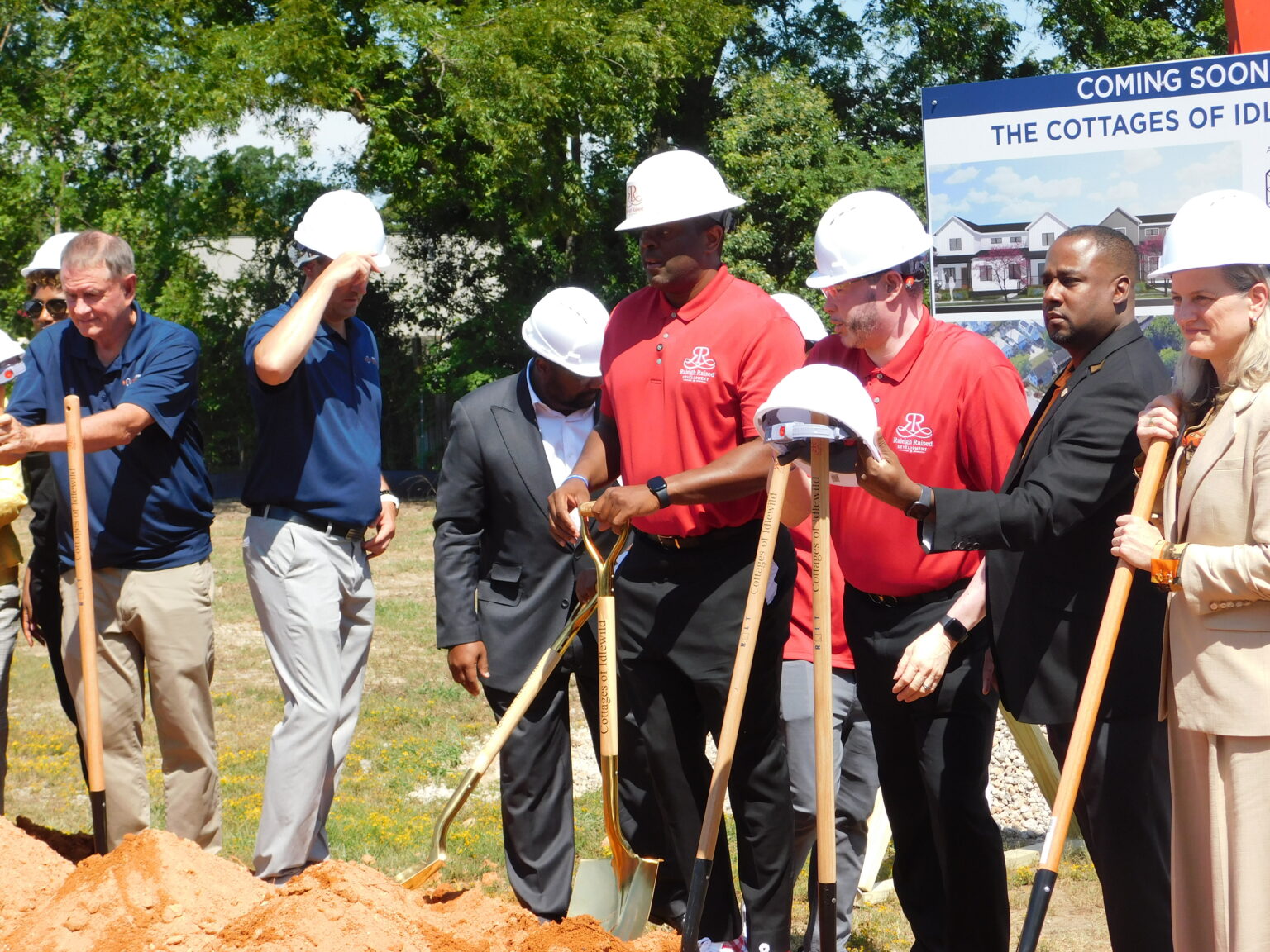
BY: Jordan Meadows
Staff Writer
On Monday, the Raleigh Area Land Trust (RALT), in partnership with Raleigh Raised Development and the City of Raleigh, officially broke ground on the Cottages of Idlewild, the city’s first permanently affordable cottage court community.
Located in the historically Black neighborhood of Idlewild—the first area in Raleigh where formerly enslaved people could own land—the project will offer 18 homes to individuals and families earning between 30% to 80% of the area’s median income.
The driving force behind this landmark development is LeVelle Moton, co-founder of Raleigh Raised Development and head men’s basketball coach at North Carolina Central University.
“This is more personal for me than it is business,” Moton said. “The thing I always wanted to do is just make it out here to come back and give back and provide opportunities because I know there are challenging situations.”
He grew up in Idlewild, raised by his grandmother in a neighborhood plagued by poverty and drugs in the 1980s. Across the street from the new development is LeVelle Moton Park, a place he wasn’t even allowed to go as a child due to safety concerns.
The Cottages of Idlewild is built on 1.7 acres of city-owned land on East Lane Street. The project includes 14 homeownership units priced around $145,000, and 4 rental apartments with rents starting as low as $519/month. The project is expected to take 16 months to complete.
It's being developed under the Community Land Trust model, which ensures permanent affordability by allowing homeowners to purchase the structure while leasing the land through a renewable, inheritable 99-year lease. This model reduces both upfront and long-term costs. Property taxes are assessed only on the home, and resale prices are restricted to preserve affordability for future generations.
“People can gain and profit equity in these homes,” said Moton. “If they move, they can take some of the equity out and create generational wealth for their families in the same capacity that it's been created for people that didn't look like us or people who weren't from these communities.”
Raleigh is currently facing what city leaders describe as an “urgent housing affordability and homelessness crisis.” Wake County alone has an estimated shortage of 66,000 affordable units. The median home price in Wake County was $489,450 in July, making the $145,000 homes in Idlewild significantly more accessible to working-class families.
Raleigh Mayor Janet Cowell applauded the effort and pointed to the development as a potential blueprint for future projects.
“This is an innovative approach,” she said. “I respect this is a blueprint and maybe now we can roll faster now that we’ve done one, but for me it’s the challenge of saying how do we do this more efficiently for more units.”
For Moton, the project is the embodiment of his life’s mission—to honor the people who helped him survive, to provide a future for children growing up like he did, and to challenge what it means to succeed. The Cottages of Idlewild is part of a broader vision to keep longtime residents in their neighborhoods as gentrification drives prices up and families out.
“It’s 18 units ... It’s certainly just the tip of the iceberg, and in no way is this savior of the Raleigh community,” Moton said. “Instead of them having to be displaced and go to Knightdale or Wake Forest or surrounding areas, they can remain in the neighborhood that they grew up in.”
The project is the result of years of effort. After the city agreed in 2021 to dedicate 1.2 acres of land for affordable housing, RALT and Raleigh Raised Development, alongside Haven Design Build, secured $8.3 million in funding. The groups will partner with DHIC Homeownership Center to help identify first-time homebuyers, ensuring that the homes go to those who need them most.
RALT, founded in 2019, plans to have 40 homes under its land trust model by next year and reach 100 by 2028.
